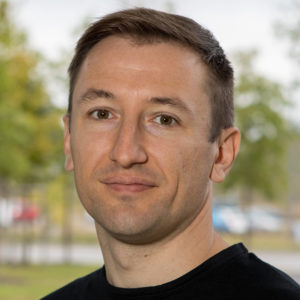W9: ExpCCAM: Experimental Approaches for Evaluating and Showcasing Low-Latency CCAM Applications
Co-chair: Sébastien Faye, Luxembourg Institute of Science and Technology, Luxembourg
Co-chair: Ion Turcanu, Luxembourg Institute of Science and Technology, Luxembourg
Keynote Panelist
- Olav Tirkkonen, Aalto University, Finland
- Marco Rapelli, Politecnico di Torino, Italy
- Sanket Partani, University of Kaiserslautern, Germany
- Joshwa Pohlmann, Barkhausen Institut, Germany
Abstract: Assessing the performance of Cooperative, Connected, and Automated Mobility (CCAM) applications and associated wireless technologies has been the subject of many research studies during the last few years. Numerical analysis, simulation, emulation, and physical demonstrators are all approaches that have been used by the scientific community to experiment, prototype and test their work – but often in a scattered way and with only little potential for re-use. At least this was the case before the efforts made through popular experimentation frameworks like Eclipse SUMO, OMNeT++, OpenAirInterface, and many others – paving the way for accessible, realistic interfaces with real-time components.
In this context, this workshop aims to bring together the research community working on experimental approaches for evaluating, testing, and showcasing the capabilities of CCAM applications in the era of ultra low-latency communication technologies, and more specifically 5G. With a network infrastructure not being deployed on Europe’s major roads until 2025, it is of tremendous interest to propose solutions to study the deployment and scalability potential of future CCAM applications – which might involve varying architecture requirements and protocol choices (e.g., 5G NR, LTE, IEEE 802.11p).
This workshop is specifically targeting contributions that showcase laboratory-sized, fully reproducible experiments, be it numerically or in a physical format. Relevant topics include, but are not limited to:
- Performance evaluation of vehicular networks for automotive services
- Simulation or emulation of low-latency communication networks, including 5G
- Simulation or emulation of CCAM services
- Physical demonstrators and prototypes of low-latency networks and/or CCAM applications
- Platforms for raising awareness about the benefits of low-latency communication and connected mobility
- Experiments of vehicular network technologies for automotive services
- All of the above, but applied to applications comparable or similar to CCAM for demonstration purposes
Workshop Program Schedule – Sunday, 19 June 2022
First slot (9:00 – 10:30):
- Welcome (Ion Turcanu, 5 min)
- Keynote (Sebastien Faye, 30 min + 10 min Q&A) – “A Nation-Wide Digital Twin of Luxembourg: opportunities, challenges and use-cases for CCAM”
- Paper 1 (20 min + 10 min Q&A): “Quantitative Assessment of CCAM Applications on Greenhouse Gas Emissions”
Second slot (11:00 – 12:30):
- Paper 2 (20 min + 10 min Q&A): “ROS2-based Small-Scale Development Platform for CCAM Research Demonstrators”
- Panel (30 min + 10 min Q&A): “Open Experimental Platforms for CCAM: benefits, challenges, and opportunities”
Information about the workshop organization:
- Organizers: Dr Sébastien Faye, Dr Ion Turcanu (Luxembourg Institute of Science and Technology – LIST)
- Peer review activities will be additionally supported by Dr Maximilian Matthe (Barkhausen Institut)
Co-chair Bios:
 Sébastien Faye
Sébastien Faye
Bio: Dr. Sébastien Faye is Senior Research and Technology Associate at LIST and works on projects related to 5G, Smart Mobility and IoT. Sébastien hold a MSc degree in telecommunication from UPJV (Amiens, France, 2009). Between 2009 and 2014, Sébastien was a web entrepreneur and created several web services and two startups. From 2011, as a PhD candidate at Telecom ParisTech (Paris, France), he focused on distributed systems applied to intelligent transportation systems. Between 2014 and 2017, he was a Research Associate at UL/SnT and responsible for the VehicularLab team. He is the Principal Investigator of 5G-EMIT (SMC) and Work Package leader in 5G-INSIGHT (FNR/ANR). He was the Quality Manager of 5GMOBIX (H2020) and has already worked on several other national and European initiatives related to 5G telecommunication, smart mobility and IoT. Sébastien is also the author of two patents about location profiling based on network traces.
 Ion Turcanu
Ion Turcanu
Bio: Dr. Ion Turcanu is a Research and Technology Associate at the Luxembourg Institute of Science and Technology (LIST). He received his Ph.D. degree in information and communications technologies and his M.Sc. degree in computer science from the University of Rome Sapienza in 2018 and 2014 respectively. Until 2021, he was a postdoctoral researcher at the Interdisciplinary Centre for Security, Reliability and Trust (SnT), University of Luxembourg, in the group of Prof. Thomas Engel. In 2016, he was a visiting scholar with the Distributed Embedded Systems group of Prof. Falko Dressler at Paderborn University. His research interests include communications protocols for multi-technology vehicular networks, time-sensitive networking for in-vehicle communications, and next-generation cellular networks. He is part of the ITIS department at LIST, which performs research and innovation activities in information systems and services.
Deadlines:
Workshop paper submissions due EXTENDED: 23 March 2022
Acceptance notification: 17 April 2022
Final paper submission due: 1 May 2022
To submit a paper to this workshop, please visit: https://vtc2022s-rr-wks.trackchair.com/track/2044
For additional information or this workshops call-for-papers: ExpCCAM CFP-1
